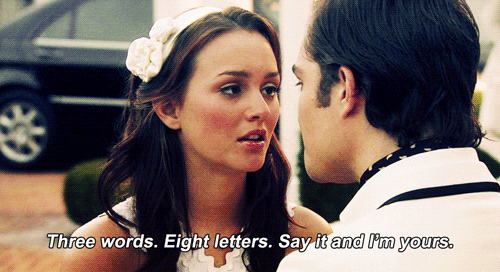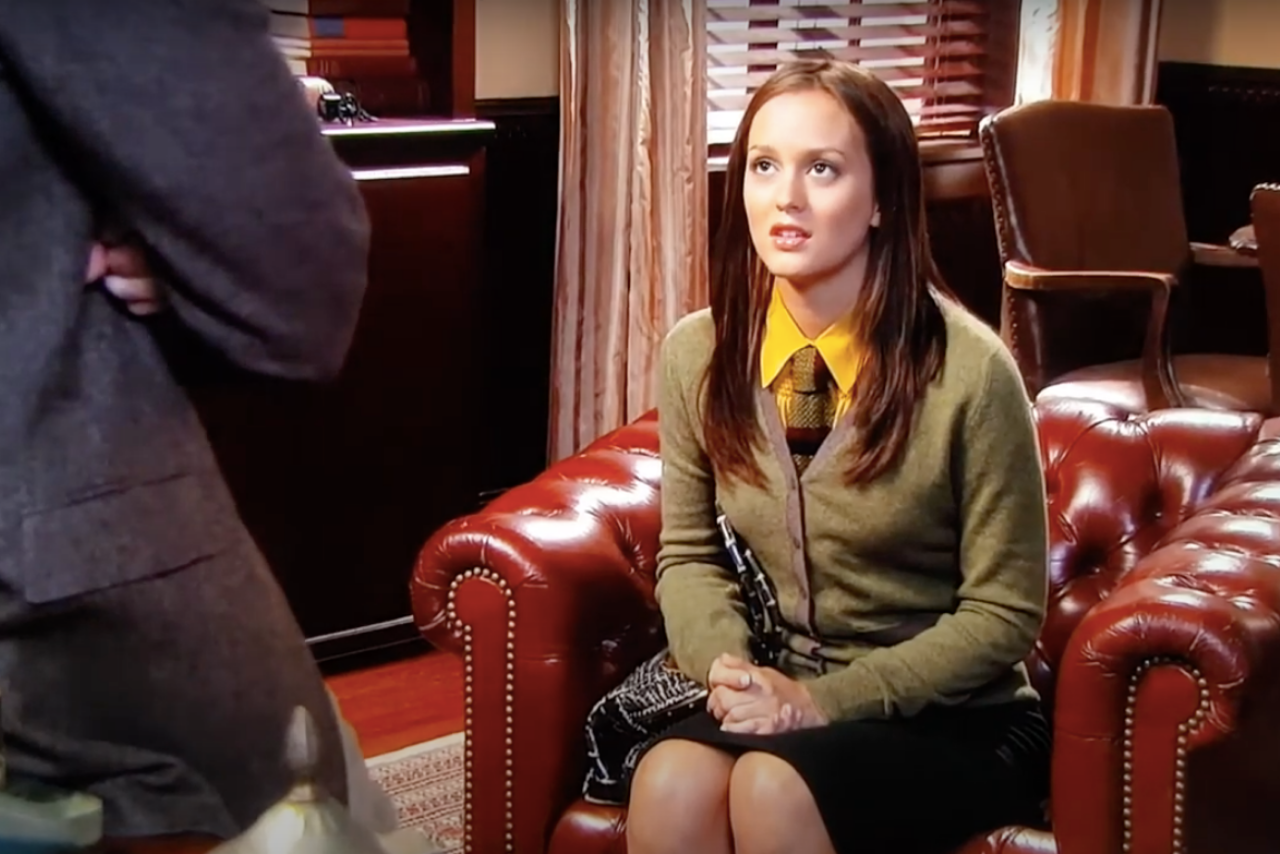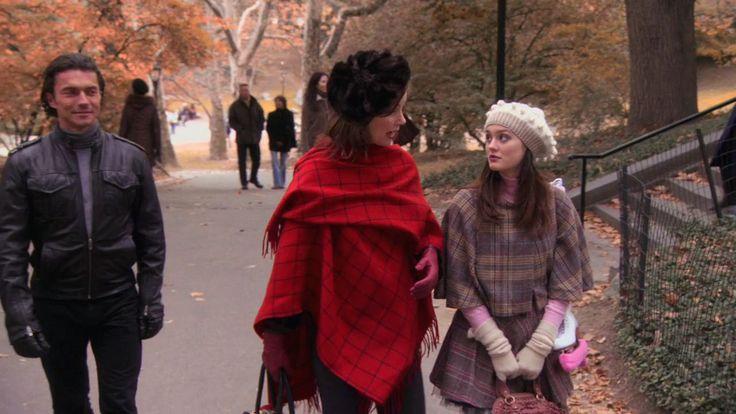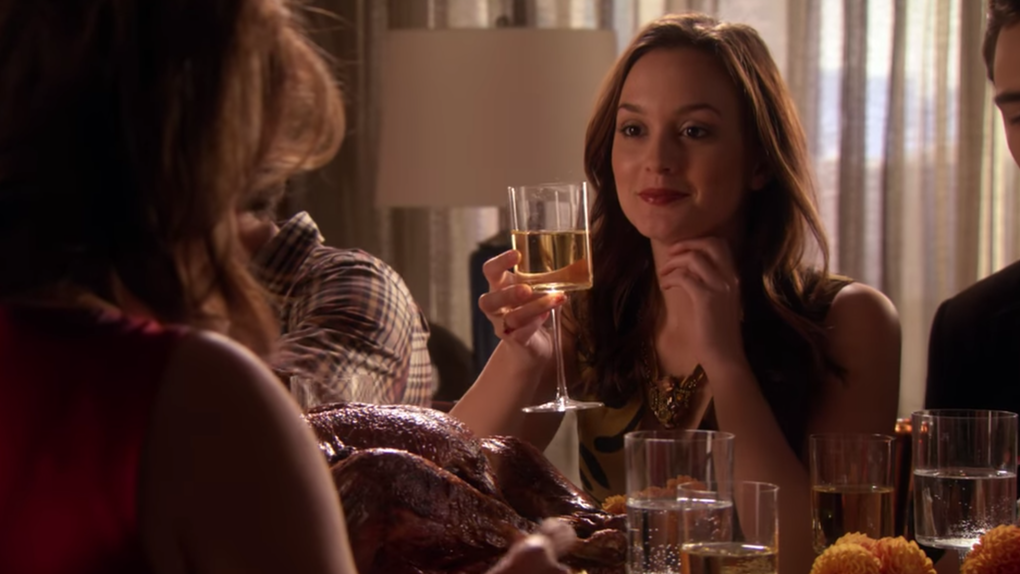If you have read my past articles, then you would know that I am OBSESSED with Gossip Girl. It’s basically my entire personality. New York. Fashion. Complex female characters. Teen drama. I love it. The only show that has ever come close to beating it as my favorite TV show of all time is Euphoria, and that’s saying something about how truly I love Gossip Girl. However, there is one part of my personality, an important part, that gets kind of complicated when Gossip Girl is brought up: feminism. Overall, I think Gossip Girl is feminist and quite revolutionary in its depiction of young female sexuality on TV. However, there are key aspects of the show that aren’t very feminist at all. That’s what this article is about.
Let me start off by saying that there is no such thing as a perfect feminist and there is no such thing as the perfect TV show. If you take a look back, you have probably submitted to the patriarchy with or without realizing it, whether it’s through gender roles at school or work or calling someone a slut or a bitch in the negative connotation. Even world-renowned feminists have probably submitted to it at one point in time. Every TV show has an element that is problematic, offensive and insulting, just like every human being. Everyone makes mistakes, even TV writers and feminists. It doesn’t matter if it was pre or post #MeToo, a different time period, or before or after you were educated on feminism, the patriarchy is so ingrained in us by society that anti-feminism, both big and small, is bound to happen, and Gossip Girl is no different. Although it was pre-Gen-Z and pre-#MeToo, that’s still not an excuse. However, it’s worthy of reflection.
One of the most notorious examples of Gossip Girl’s tricky relationship with feminism is Chuck Bass. Chuck Bass attempts to rape two girls in the pilot episode of Gossip Girl. Later on, he ends up being both of those girls’ stepbrothers and one of those girls even has her sexual debut with him, although you might know it as “losing their virginity.” He also cuts his one true love Blair Waldorf’s cheek after finding out she was engaged to another man. He is also constantly womanizing and sexualizing women throughout the series. However, none of this is really discussed throughout the series. It’s often glossed over or has a one-off scene that offers an apology and forgiveness when these storylines deserve more time spent on them. Chuck then ends the series as a leading man, married to Blair with a son, and avoidant of all consequences.
Now, as someone who has watched the series nearly 20 times, I’ll say the writers tried to touch on these issues, but they often got distracted with new storylines and chose to focus on those rather than Chuck’s misdeeds and other characters’ trauma. In season 2, Jenny Humphrey confronts Chuck about him forcing himself on her at the Kiss On The Lips party in the pilot. Chuck apologizes regretfully and swears that if Rufus and Lily get married, which they eventually do, Chuck will move out. There is also a point when Chuck is outed as a youthful sexual predator when he says that “obviously there were incidents with room service at the palace but that was my father’s hotel. I was a kid. I would never do that now. Not in my hotel.” However, it’s revealed that Jack Bass outed the story to the press, and this part of the storyline is never really resolved except for Chuck signing over his hotel to his “mother” and getting double-crossed and accidentally signing it to Jack.
There is no evidence that the quote above is untrue. In episode 2 of season 1, we see Chuck’s morning after with The Palace’s room service staff and in bed with a staff member of his father’s brunch. We also have evidence of why he acted out like this. His father thought the worse of him, as seen in the iconic Victor, Victrola episode, and in season 2 we find out that Chuck’s mom died giving birth to him and that he looks just like her, further causing resentment from his father. Chuck even says that Bart was born poor and Chuck was born loaded and that the only way to impress Bart is to prove himself, which he attempted to do with his business proposal for Victrola, then why doesn’t Bart take Chuck’s excess and money away? Chuck is isolated, confused and a creature of habit. He is emotionally exiled and doesn’t have anyone to turn to for help until Lily comes into his life. Now, is this difficult father-son relationship an excuse for Chuck’s behavior? Hell no! However, does this offer insight into why Chuck acts out? Yes. Throughout the later seasons, Chuck has plenty of lost weekends and one-night stands, but there is no evidence that this is non-consensual.
In the latter half of season 2, his father dies and he gains the courage to tell Blair Waldorf that he loves her. This changes him. When Jack forces himself onto Lily at the opera, Chuck is the one to save her. When Blair grows uncomfortable with their borderline cheating scheme, he stops it. As we see in the first half of season 3, he is more selfless and gentlemanly. However, when you behave one way your entire life and are taught that that way is okay, old habits die hard. In the episode titled “Inglorious Bassterds,” Chuck betrays Blair by trading her to his insidious uncle Jack for his precious Empire Hotel. This is the unchanged Chuck peaking through. The elder Bass men pressure him and manipulate him, which causes him to betray one of the only positive people in his life. Once again, this is no excuse whatsoever, but it does offer insight into Chuck’s weaknesses.
Chuck feels so terribly about his own actions that he attempts to change his identity completely in season 4. However, the Upper East Side’s pull is too strong and goes back to being Chuck Bass. This predatory weakness doesn’t truly show through again until he cuts Blair on her engagement night. He is so distressed over her choosing another man, that he hurts her again, this time physically. However, their love is too strong and she ends up forgiving him because eventually, she ends her marriage with Prince Louis of Monaco and ends the series married to Chuck. This is because, as much of an empowered woman Blair is (more on that later), she still sees the best in Chuck and refuses to give up on that.
We don’t see Chuck as a father, but based on what we know about him, we can assume that he tries hard to be a better man, but occasionally his darkness will slip. Hopefully, he has found the value in therapy and is a better and less submissive therapist than Dr. Barnes.
I think the reason why viewers have so much discomfort with this pre-#MeToo storyline is because of how much society has turned its heads on the misbehavior of wealthy, white men in power. Chuck’s arc eerily compares to that of notable wealthy New York men like Donald Trump and Armie Hammer (who played Serena’s love interest Gabriel in Season 2) as well as other white men Harvey Weinstein, Prince Andrew, Brett Kavanaugh and Jeffery Epstein. Seeing this behavior in a teenager is too terrifying to fathom. It’s also quite shameful that we ship the show’s biggest predator with the show’s most empowered female character. It’s important to acknowledge these faults, why they are faults, how they are faults, and how we could have done better, both as viewers and creatives.
All of this could have had more time spent on it, but the writers chose not to. I personally think their best opportunity was to do it in season 3 when Chuck gets outed as a sexual predator. We could have had Chuck finally face the consequences of his own actions, but with even bigger stakes of it being in the public eye. This isn’t just a Gossip Girl blast, this is national news. It could have been a great storyline that reflects the real world, but alas, the writers decided to go in a different direction.
Chuck isn’t the only example of anti-feminism in Gossip Girl, just the biggest. There is also quite a bit of slut shaming. While slut shaming is awful in every circumstance, Gossip Girl shows slut shaming in a fairly realistic way. When Serena comes home from boarding school, it’s revealed to her best friend Blair that she slept with her boyfriend Nate. Blair, justifiably angry, calls Serena a slut and a whore both literally and figuratively on numerous occasions. This is a very realistic example of how teens would slut shame their peers. Is it a good thing, absolutely not, but it’s realistic. Also, Nate, the resident nice guy, insinuates that Serena is a slut through miscommunication on the phone in the Season 4 episode “The Sixteen-Year-Old Virgin.”
Another example is in the season 2 episode titled “It’s a Wonderful Lie.” Serena is dating Aaron Rose and she meets his sexually liberated ex-girlfriend Lexi, who becomes interested in Serena’s ex Dan. When Lexi and Dan decide to go to the snowflake ball together, Aaron tells Serena that Lexi likes to sleep with guys on the first date. It makes sense that Aaron would be into a sexually liberated girl like that due to his already established pension for open relationships, which notably made Serena uncomfortable, although she denies that fact claiming she believes in freedom and rejects her traditional upbringing. While Serena doesn’t openly call Lexi a slut, her undeniable discomfort with Lexi’s tendencies is a clear showcase of Serena’s traditional upbringing peeking through her relaxed personality.
Another example is in the episode “A Thin Line Between Chuck and Nate” in season 1 when Blair gets back together with Nate causing Chuck to get jealous and send a tip to Gossip Girl about her sleeping with two guys. This is an example of both boys and girls ganging up on a woman and ostracizing her for her sexuality. Mirroring that of The Scarlet Letter, the blast Chuck sends out basically tattoos a scarlet letter on Blair’s forehead, causing her shame around the NYC prep school scene. However, Blair is not one to go quietly, and eventually gets the power back.
In this episode, Blair thinks she is pregnant, so Serena buys a pregnancy test on her behalf. When Gossip Girl posts a picture of Serena shopping for them, rumors spiral. Serena gets laughed at school. However, her classmates are used to seeing that reckless behavior from Serena, but not Blair. Blair is terrified and only trusts her best friend with helping her. However, when Blair’s denial is too much for Serena, Serena turns to Chuck. Chuck confronts Blair and when she stands up to him, he sends the blast. When the blast drops, Blair is speechless. Nate doesn’t believe it, but Jenny informs him that it’s true and Chuck’s one of the other guys. Nate fights Chuck in front of the whole school about sleeping with Blair, which causes the whole school, Blair’s whole kingdom, to turn on her. Her minions slut shame her on the Met steps and choose Jenny over Blair. Nate is pissed about Blair’s hypocrisy, but Chuck is the real hypocrite. Blair turns to Chuck and Chuck slut shames her even though he was the one to send out the blast. He compares her to his dad’s Arabian prostitutes. Blair decides to spend a semester in Paris, but Serena convinces her to fight like Waldorf, and she does. And she wins.
This is a perfect example of how detrimental slut shaming can be to a young woman. While Blair has the confidence and the resources to take the power back, not all women do. Seeing Blair stand up against the patriarchy in her school is inspiring. However, it can also follow them around. When Blair is trying to get Louis’ family’s approval for their marriage, her high school pregnancy scare is brought up. She can’t escape it. But the men involved in it, Chuck and Nate? Not a word about their involvement from that season onward.
In season two, Serena forms a relationship with hipster artist Aaron Rose who likes to date openly. While Serena prides herself on her free-spirited nature and open-mindedness, she is notably uncomfortable with Aaron’s pension for open dating. This is because even though she was raised by a mother who was always in and out of relationships and constantly dated both casually and exclusively, she was still raised with traditional relationships, causing her to value commitment and exclusivity in romantic relationships, especially because of her fear of abandonment after he father left her when she was young. Her apprehension and discomfort practically forces Aaron to break up with her or stop dating openly, instead of Serena trying to be open-minded. Then, when Aaron was asking her about her past, she went out of her way to try and hide her past until she couldn’t anymore.
Even in the season 3 premiere when Blair tells Serena about the game Chuck and her have been playing all summer, involving Chuck picking out a girl, making her think they are about to hook up. Blair walks in as the scorned woman and embarrasses the other women, (now the scheme itself of women fighting over a man isn’t very feminist and definitely fails the Bechdel test, but it is of the times and very Blair and Chuck. If Gossip Girl was made today, they would probably switch off between Blair and Chuck doing it to both men and women, which still isn’t great, but is still very Chuck and Blair), Serena is very apprehensive. Blair assures Serena that they are “completely monogamous” and not in an open relationship, but Serena still warns Blair about the possibility of him accidentally kissing someone else during their scheme. Both girls are notably uncomfortable with the idea of polyamory or an open relationship, which is valid, and at least they aren’t judgmental of it. However, Blair’s traditional values aren’t surprising. At this point in the series, we know Blair has conventional values. However, Serena is a little more conservative in her idea of relationships than we think she’d be. It’s also worth noting that Blair’s dad is gay and remarried, Serena’s brother Eric is gay and their Upper East Side upbringings cause them to be surrounded by casual hookup culture, so they aren’t uncomfortable with queerness or casual dating, but polyamory is too much for them? Interesting.
One of the most unlikable characters in Gossip Girl, Vanessa, is also a slut shamer. She slut shames Serena numerous times throughout the series. She also pairs it with a holier-than-thou attitude, which makes it even worse. She doesn’t know Serena. When Blair shamed Serena, they were best friends for years. Vanessa is saying these things through assumption and hearsay. She has no evidence and no personal experience, or even personal gain. This is part of the reason she is one of the most hated characters.
However, Vanessa is in one of the more sex-positive scenes of the series, the infamous threesome with Dan Humphrey and Olivia Burke, played iconically by Hilary Duff. While in recent years it could be seen as using polyamorous relationships as a tool for scandal and kink instead of an actual real relationship, in reality, it is more about experimentation. This scene takes place in season 3 when all the characters are in their freshman year of college. College is a time to experiment, try new things, and learn about yourself, both involving your sex life and not. This is a prime example of college kids being college kids, and while it may be under the scandalous lens of Gossip Girl, that doesn’t make it any less true.
One missed opportunity for a smash-the-patriarchy moment was when Blair sabotaged Jenny’s Tim Gunn presentation in the epic entitled “Easy J.” Jenny was trying to get a letter for a recommendation from Tim Gunn saying that her designs are meant to represent women of today and their self-confidence and self-worth. However, when the models come out, the letters that spell out “whore” are spray-painted on Jenny’s dresses. Now, this moment is more rooted in sabotage than slut shaming (although Blair is upset with Jenny for sleeping with Chuck, consensually that time), it’s still using a word often used when slut shaming. However, instead of Jenny taking the cards she’s been dealt and proving Blair wrong, Jenny submits and childishly stomps off in defeat. The writers could have saved Jenny’s character arc in one scene if they just had her go on a spiel about how women are taking the power back and taking words like whore and bitch back and making them terms of camaraderie instead of sexist insults. After all, Blair self-proclaims herself as a bitch numerous times throughout the series.
While so far I’ve contradicted my opinion of Gossip Girl being feminist by listing all the times it wasn’t, well now it’s time to prove that it is. Blair Waldorf cements herself as a feminist icon in season 4. Firstly in the episode entitled “Goodbye, Columbia,” where Blair tries to relate to one of her professors Martha Chamberlain by explaining how power is the greatest aphrodisiac, except when a woman has it.” Later in an episode entitled “War At The Roses,” when Blair is talking to Dean Ruther. She talks about being a woman who cares about her right to choose in matters of reproductive rights. This moment is often overlooked, mostly because it takes up maybe 10 seconds of screen time, but it’s important because it reveals Blair’s feminist values.
This was explored in a later episode in season 4 entitled “The Witches of Bushwick,” when Blair received the opportunity to become the face of the Girls Inc. foundation (which coincidentally has just made Stephanie Savage, Gossip Girl’s executive producer, a board member). However, her association with the notoriously hedonistic businessman Chuck Bass threatens it. When she talks to Serena about her ties to Chuck and wanting to represent Girls Inc., Serena name-drops the HBO show Big Love, which is about Bill Paxton, a Mormon man in a polyamorous relationship with multiple wives. Blair notes how men being the only ones allowed to marry multiple people in Utah is extremely sexist. She also realized over the course of the episode that a truly empowered feminist is unashamed of her sexuality, shown when Blair strips from her meticulously styled outfit into her slip dress and attend Chuck’s Saints and Sinners party unapologetically and when she decides not to go forward in her relationship with him, in order to make her own mark on the world without being tethered to a man. The latter realization is bittersweet for her when KC, Chuck’s publicist, suggests that Blair attends parties and fashion shows as “Chuck Bass’ girlfriend” instead of Blair Waldorf. When Chuck proclaims that they can have it all, Blair heartbreakingly says “no, you can. It’s me who can’t,” which is when she decides that their relationship needs to wait. This season is a heartbreaking example of how male-female romantic relationships work in the public eye. Chuck is oblivious to it, but Blair sees it too clearly. The reason Girls Inc. didn’t want Blair to have a relationship of any kind with Chuck is that, while he isn’t a reflection of her, she is a reflection of him. This double standard caused Blair to lose the Girls Inc. opportunity and became the wake-call she needed to stop playing push-and-pull with Chuck and focus on herself. And she spent much of the rest of the season getting a job at W Magazine and ends up finding a healthy relationship with Prince Louis (at least within Season 4, Season 5 is a different story).
As aforementioned, Gossip Girl was very revolutionary. This is because, unlike shows that came before, Gossip Girl prioritized female sexuality and pleasure. Gossip Girl shows women enjoying sex, especially through Chuck and Blair’s relationship, where Chuck, a notorious hedonist is often seen letting Blair be the dominant one during sex. In fact, she encourages her to be on top whenever she wants. He wants her to explore her sexuality and find what she likes. He never shames her or forces her to stick to “traditional” roles. Chuck was often seen catering to Blair’s desires in sex dreams and under the covers (a cheeky nod to oral sex in order to follow CW restrictions). This broke stereotypes because it showed a selfish playboy prioritizing his female partner’s pleasure. He supports her exploration in a way that is refreshing, especially for his character archetype who is usually seen thinking of his own pleasure first, second, and third. It also taught women watching to prioritize their own sexual needs too, and that their partners should as well.
Chuck and Blair, in recent years, has been deemed as one of the most toxic relationships on television. However, what TV relationship is perfect, or any relationship at all? The thing with Chuck and Blair is that Chuck is fully aware that Blair deserves better than him. He puts her happiness above his own well-being at points in the series. She even puts his feelings aside on multiple occasions for men who, on paper, are better for Blair. Chuck even says in the Season 6 debutante episode that he always feared that Dan was the better man for Blair, showing how aware he is that he doesn’t deserve her. However, Blair always chooses him. She assures him in that Season 6 episode that there is no one better for her than Chuck. Not because he’s trapping her and enticing her or her lack of self-respect (which she clearly possesses as there are many, many scenes with her valuing self-care from facials to baths to pedicures and many iconic lines like “I’m not a stop along the way, I’m a destination”), but because no matter what, she loves him. She brings out the best in him. They are at their worst when they aren’t together. And I think that speaks volumes.
Gossip Girl also proved that there isn’t just one way to be feminine or a feminist. Serena and Blair are both empowered women, just in very different ways. While Serena is more sexually liberated, she also seeks love from men way more than Blair does due to the unstable fatherly figures in her life. While Blair is more traditional in her sexuality and has plenty of insecurities, she is secure enough to be pleasantly single instead of seeking a relationship just to be in one (when she does, it’s more a scheme’s sake than her insecurity). However, Serena and Blair do employ a character trope: light versus dark femininity. While the traits I previously mention actually contradict Serena’s light femininity and Blair’s dark femininity, that doesn’t mean they aren’t true. Serena has a most idealistic idea of love. When she’s in a relationship, all is right in the world, as long as her partner always sees her as an angel, even when she behaves recklessly or her wild past catches up with her. Serena is also sweeter than Blair, who always gives compliments and tries her best to tolerate those who rub her the wrong way unless the person has crossed her one too many times (looking at you Jenny Humphrey), while Blair isn’t afraid to let her despair be known. She will call you out and roll her eyes without a second thought, “am I disrespecting you? Is that mean?” and that is what makes Blair embody dark femininity. She is the more femme fatale of the two, often using sex as a game, especially when it comes to Chuck. Remember when Blair used sex to get Chuck to “seduce and destroy” Vanessa in season 2’s “Chuck In Real Life”? Dark femininity plays with desire, and Blair is certainly the femme fatale character in Gossip Girl. Blair is always trying to balance out her traditional values with her dark desires. This is shown when Blair tries to get into the Colony Club in “In the Realm of the Basses” or when Anne Archibald’s foundation meets with her about Girls, Inc. Blair’s dark and “deviant” desires, which are always associated with the writing with her connection to Chuck, always overcome her more “conservative” and “good” life desires. Over the course of the series, we see Blair battle with her high societal goals and wanting to be a powerful, independent woman with her dark, sexual desires. Eventually, she learns that she can have both, while Serena never truly learns that she will be okay single.

We also got to see a young woman’s sexual journey from start to finish. We saw Blair’s sexual debut all the way to her “I Do” moment with Chuck Bass. We saw her gain more power and comfort in her sexual duality. One key moment that stands out is actually when Blair is dating Lord Marcus. This is the only person she has slept with besides Nate and Chuck. He treats her like a “delicate little flower,” which is what she likes outside of the bedroom, but not in it. She needs more. After Marcus catches her with a man who gives her that, Chuck, she proclaims her sexual needs to him on the stairs of her penthouse in front of all her party guests. It may seem like a melodramatic Chuck Bass defeat, but for Blair, it’s a moment of empowerment.
A constant and often underrated sexual element in Gossip Girl is Blair and Chuck’s role-play kink. They often talk about their role-playing as characters in Wuthering Heights and Anna Karenina or even historical figures like Marie Antoinette and a borderline-appropriating Native American. While this is often used for some campy comedic relief, more seriously it shows Blair becoming more assured of her sexual desires, which was rare to see from anyone, nonetheless female characters on network TV. It also shows a man, Chuck, who prioritizes catering to his female partner’s sexual fantasies, something quite revolutionary.
Another constant is Blair’s pension for lingerie. Her love for sexually-associated nightwear shows her comfort and curiosity in her sexuality. The fact that she is comfortable talking to houseguests in lingerie, not just roommates and house staff like Dorota, proves this. After all, lingerie is about putting it on, not taking it off. She wears it for herself, not for anyone else, Chuck included, even during their seductive moments and role-playing rendezvouses.
One, or I guess two, situations that are on the fence between feminist and antifeminist is in regards to Nate’s sexual endeavors with older women in a The Graduate-esque sort of way. The first this being Lady Catherine in Season 2 and later was the infamous Diana Payne in Season 5. While for the women themselves, similar to Mrs, Robinson, seeing an older woman confident in her sexuality is undeniably empowering in the same way as Sylvie on Emily In Paris, who is undeniably the best character. However, it’s clear by the fact that this happens twice that Nate is an easy target and is being taken advantage of as this first time he is underage and the second Diana is manipulating Nate at the behest of his smothering grandfather. While this gender flip, as a woman is more often portrayed in this position rather than a man, is welcomed, that still doesn’t make it okay. The Diana storyline would have been more empowering if she wasn’t manipulating him and also did (at one point) lie and tell everyone she was Chuck’s mom, who is Nate’s roommate and best friend. Overall, Nate deserved better in this series from start to finish.
While numerically there are more examples of Gossip Girl’s anti-feminism, Gossip Girl’s examples of feminism outweigh its antifeminism. This is purely because of how impactful its feminism was on the larger TV and storytelling landscape. Without Gossip Girl showcasing unapologetic, empowered and complex female characters like Blair Waldorf, we wouldn’t have so many iconic female characters today like Alison DiLaurentis, Cheryl Blossom, Maddy Perez, Veronica Lodge and Katherine Pierce. Also without Gossip Girl’s writers prioritizing female sexuality, they would have never paved the way for shows like Sex Education and Euphoria.







